Teaching kids to tell the time - and the best learning games
Find out how to start teaching kids to tell the time before they start school with these expert tips, tricks, games and clock recommendations.

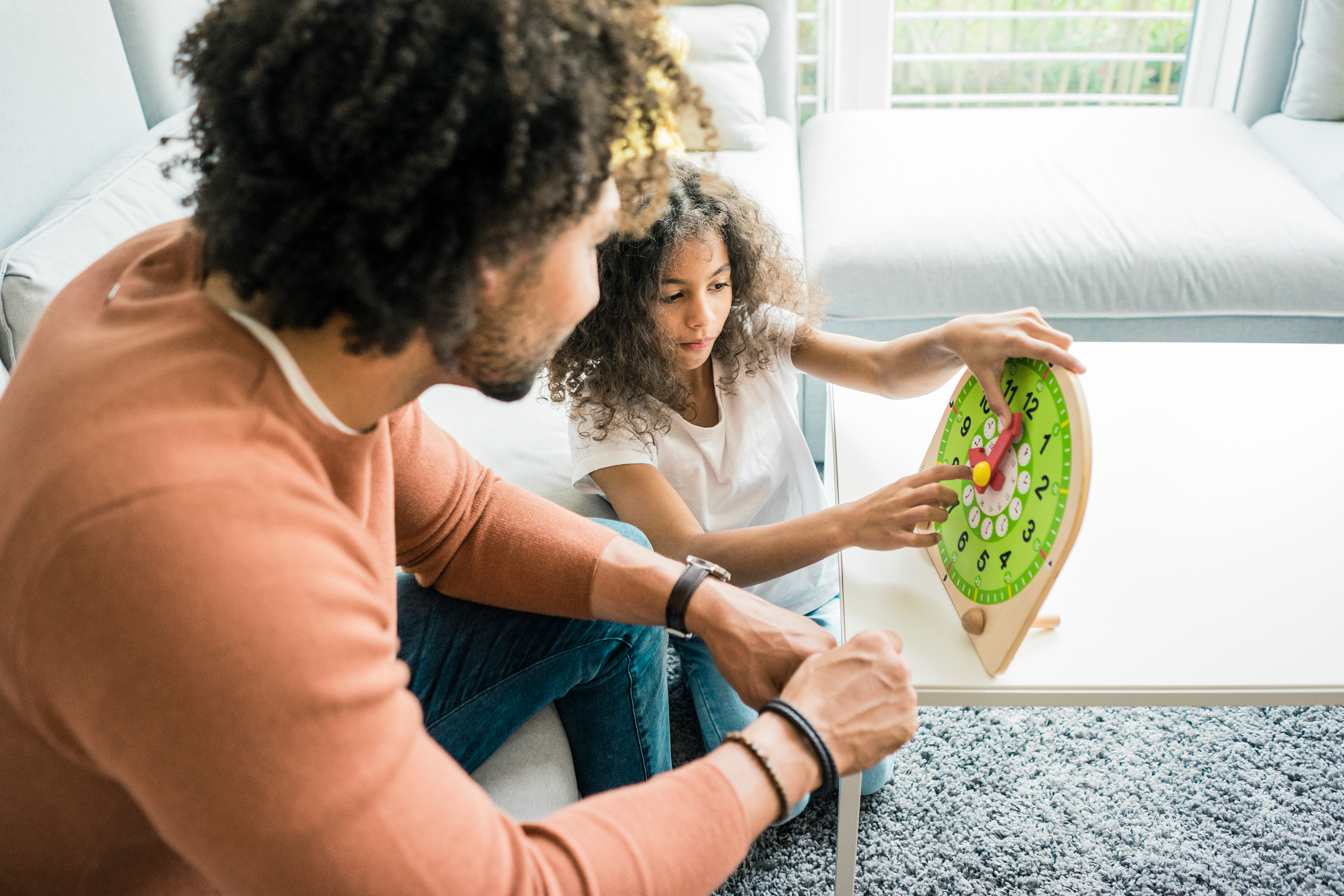
Parenting advice, hot topics, best buys and family finance tips delivered straight to your inbox.
You are now subscribed
Your newsletter sign-up was successful
Along with learning numbers and the alphabet, learning how to tell the time is up there with some of the pivotal things that parents need to start teaching young children from an early age.
But luckily, it’s easy enough to do and there are plenty of learning tools out there to help with teaching kids to tell time. Before they get their first watch, you can use games and learning devices to help them along their way to recognising numbers as the first step, before going into harder territory like minutes and seconds.
It doesn’t all need to come at once though. Teaching kids to tell time is a process that actually happens over a number of years and is normally supported by teachers in schools and even at nursery. This is what you need to know to help teach kids how to tell the time…
When should children learn to tell the time?
Children are taught to properly tell the time when they start school aged four or five years old. However, it’s thought that children as young as two can count to ten so beginning to teach kids how to tell the time before then is a good idea.
Childcare Development Manager for nursery group Storal Learning, Hannah Tranah says, “Learning to tell the time is a long process, roughly developed between the ages of three and eight. By age three to four children should be able to order a sequence of events and to measure short periods of time in simple ways.”
According to the National Maths Curriculum, children are officially taught to tell the time from five or six years old when they enter year one and key stage one.
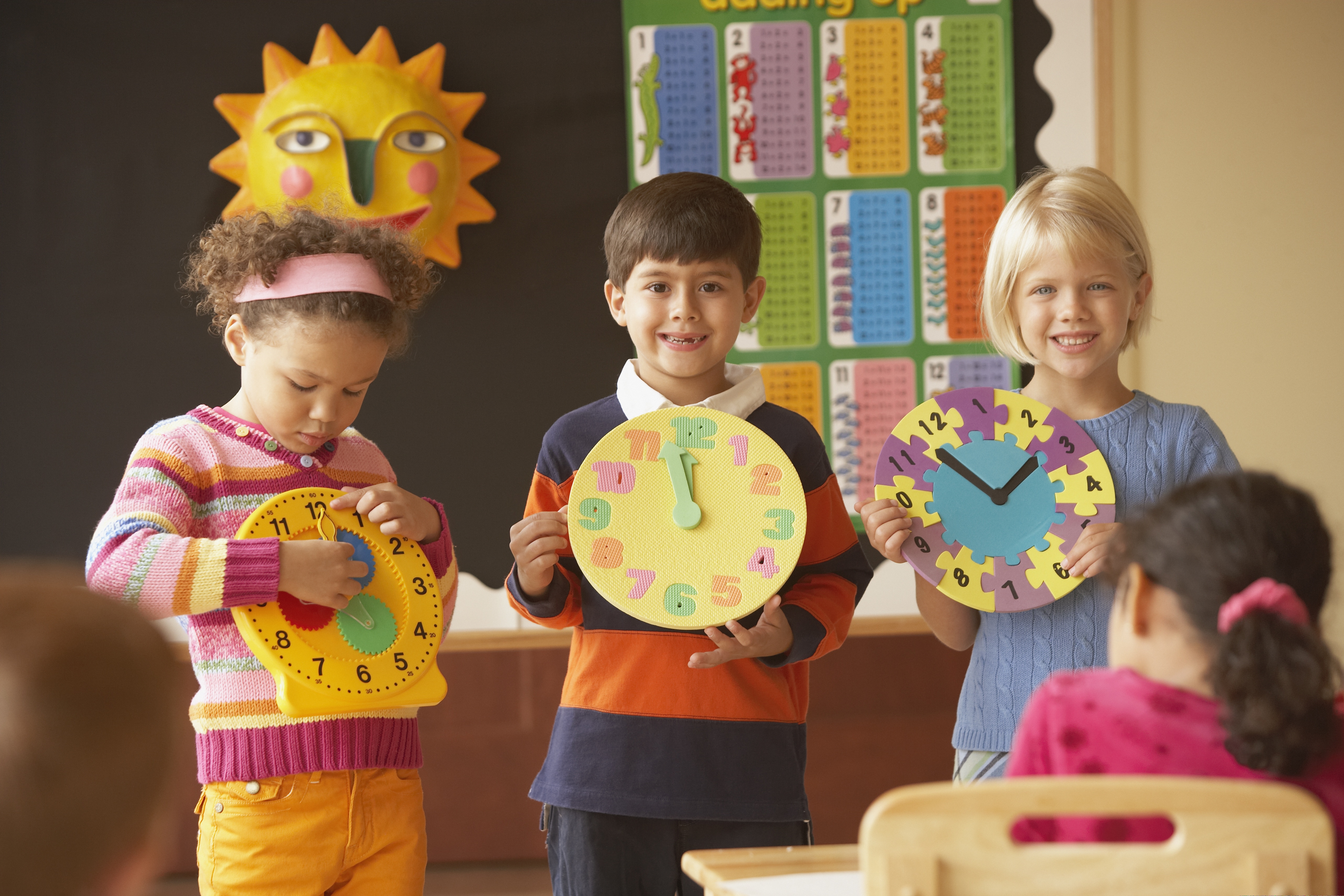
Year one: Children are taught to tell the time on the hour and half past the hour, and to draw hands on a clock face to show these times.
Parenting advice, hot topics, best buys and family finance tips delivered straight to your inbox.
Year two: Although year two is also key stage one, now, children are taught to tell the time in five minutes, including quarter past/to the hour and draw the hands on the clock representing these times.
Children are also expected to know the number of minutes in one hour and the number of hours in one day.
Year three: In key stage two, children will be expected to know the time and write the time from an analogue clock, use Roman numerals from I to XII, as well as the 12-hour and 24-hour clocks.
Young children will also need to be able to estimate and read the time with accuracy to the nearest minute, record the time, use vocabulary like morning, afternoon, noon and midnight, along with O’clock, a.m and p.m.
Year four: This is the second year of key stage two and the last year that the national curriculum requires schools to teach children to tell the time. At the end of year four, children will be expected to be able to read, write and record analogue and digital time, and convert 12 hour to 24 hour clocks.
READ MORE: Child development stages 1-5 years old
What's the easiest way to teach children to tell the time?
Hannah says that learning to tell the time can be tricky for young children as it requires concentrating on two sets of different ideas at the same time. “As such, learning to tell the time puts real strain on a child’s working memory. It’s therefore important to start teaching children early through practical and fun techniques.”
These are Hannah’s tips for the easiest way to teach children how to tell the time:
1) Use time in everyday life

“Before your child will be able to tell the time on a clock, they need to grasp the concept of time and how it relates to their own experiences.” Hannah tells GoodtoKnow, “It’s important to connect time into their daily routine through simple phrases such as, ‘It’s six o’clock - time for your dinner’.”
She adds, “Likewise, talk about what you do regularly at different times of the day. Compare and contrast weekdays and weekends and use time vocabulary such as today, now, yesterday and afterwards.”
2) Make them comfortable with counting
The next step is to make sure that your children are comfortable with the numbers they will be using to tell the time. As Hannah tells us, “You will need to ensure your child to confident with counting from one to 60 before introducing them to a clock.
“This can be done by counting in everyday life, such as when climbing stairs.”
3) Play fun games
The way to teaching kids anything is through fun and there are plenty of games and educational toys out there to help you out.
“Once your child is confident with numbers,” Hannah says, “You can start to increase their awareness of time with simple activities and games such as ‘What’s the time mister wolf?’”
Scroll down for some of our favourites.
Which clock is best to help children learn to tell the time?

“It’s best to get your child familiar with an analogue clock first, before introducing digital.” Hannah suggests, “Start by putting a clock in your child’s bedroom and referring to it in everyday life.”
You can also get creative with your clocks and do some activities together to get your child used to telling the time. Our expert advises making clocks on a paper plate and getting the little one to move the hands around to the hours and minutes you suggest.
But Hannah says, “Be sure to focus on important markers (12, 3, 6 and 9) as well as the hour hand and minute hand during construction.”
You could also buy them a watch to get kids excited about learning how to tell the time.
Best analogue clocks and games to help with teaching kids to tell time …
Wooden Teaching Clock, John Lewis & Partners
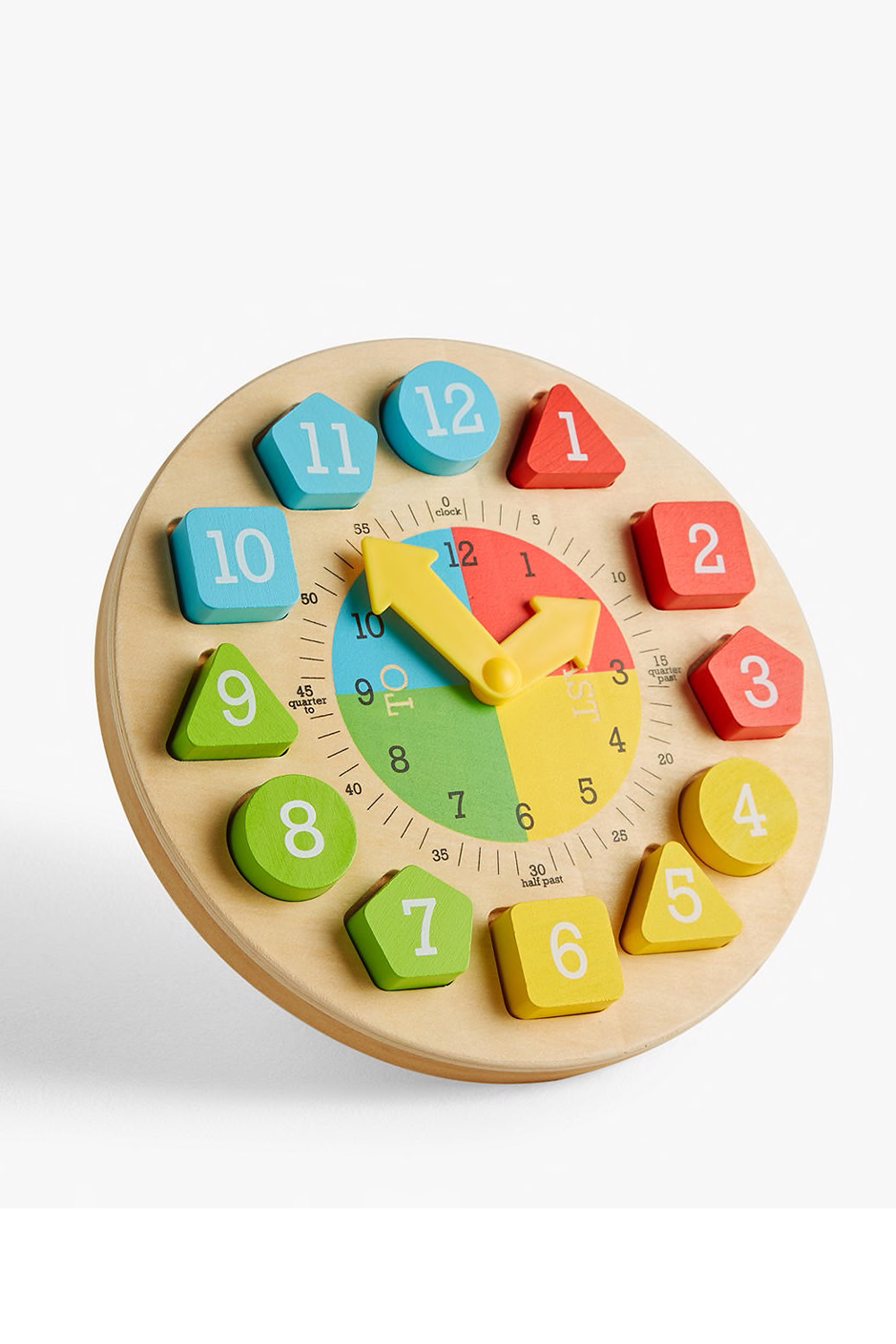
This wooden toy clock from John Lewis really is about rolling fun and learning into one. The colourful design will help young children build their understanding of numbers, shapes and colours, while the removable discs will help them to develop their problem solving skills from an early age.
Telling the time poster, Etsy
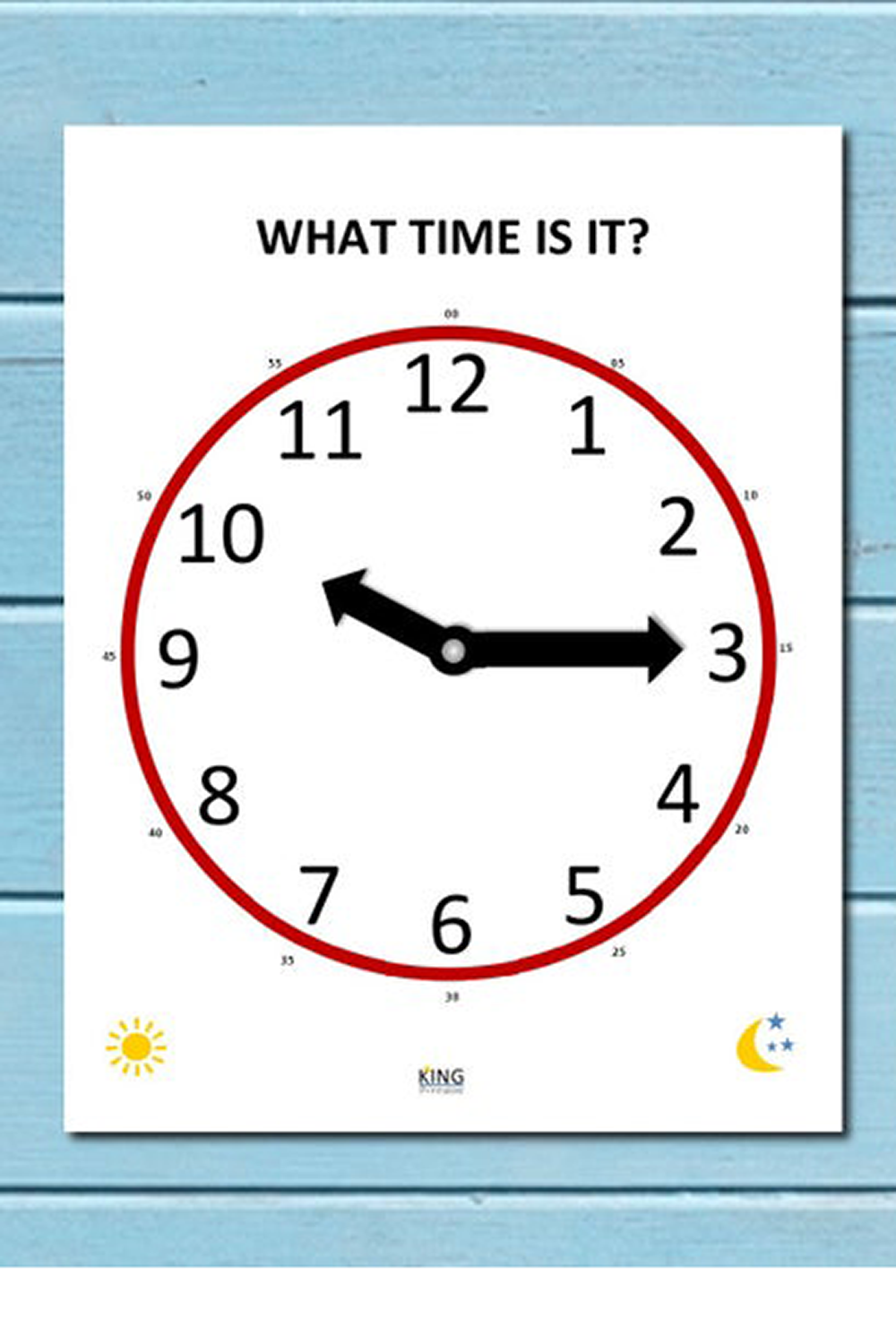
Complete with both an analogue and digital clock, this fun pack from Etsy will help kids learn their numbers on the clock in no time at all!
The clocks are instantly downloadable and printable, easy to assemble and start learning from straight away.
Children's Tell the Time Wall Clock, Argos
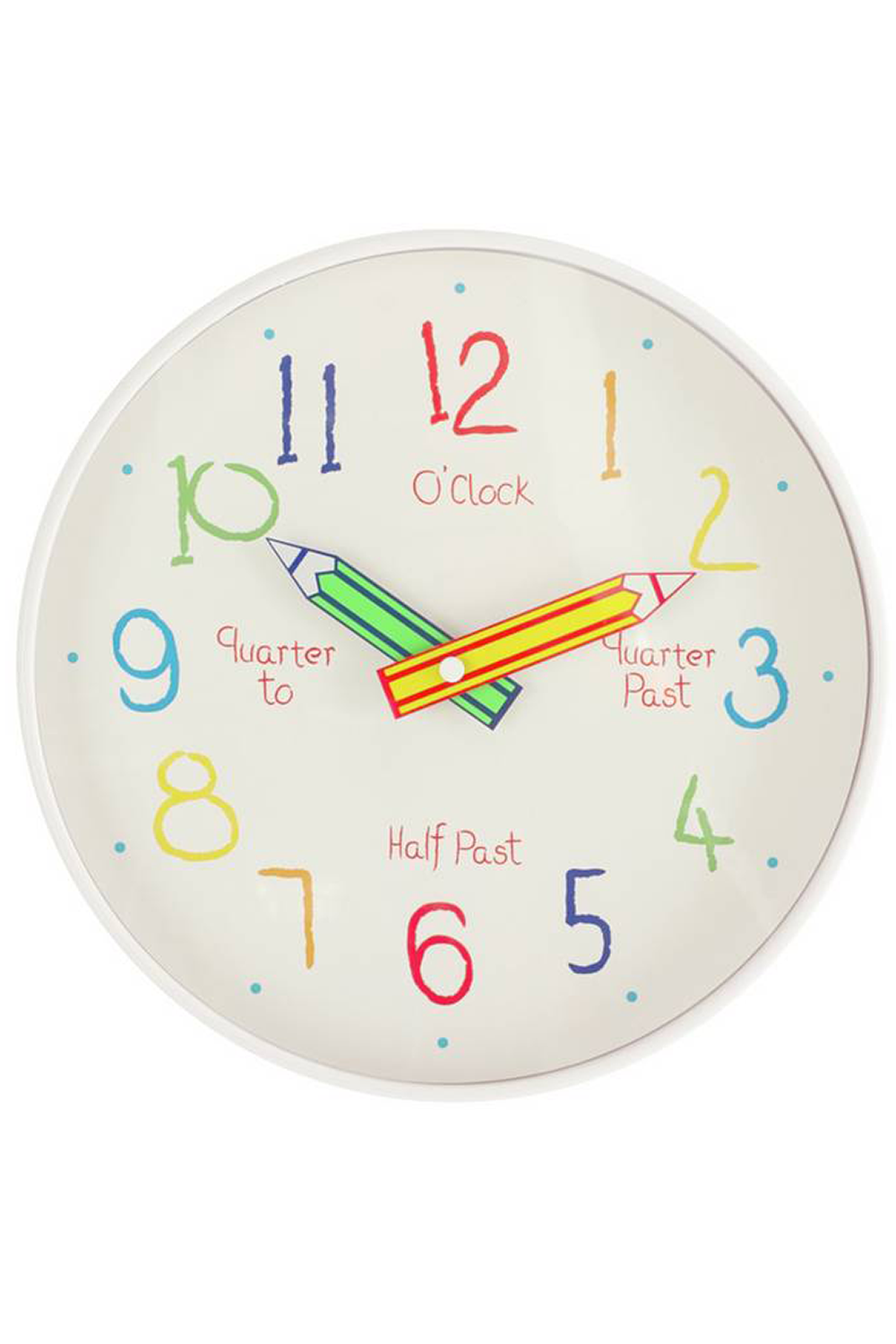
To encourage kids to learn to tell the time, our expert Hannah says it's important to incorporate time into their daily lives.
One way you can do this is by putting a clock in their room and a colourful one like this is sure to be noticed.
Pastel Learning Time Clock, Etsy
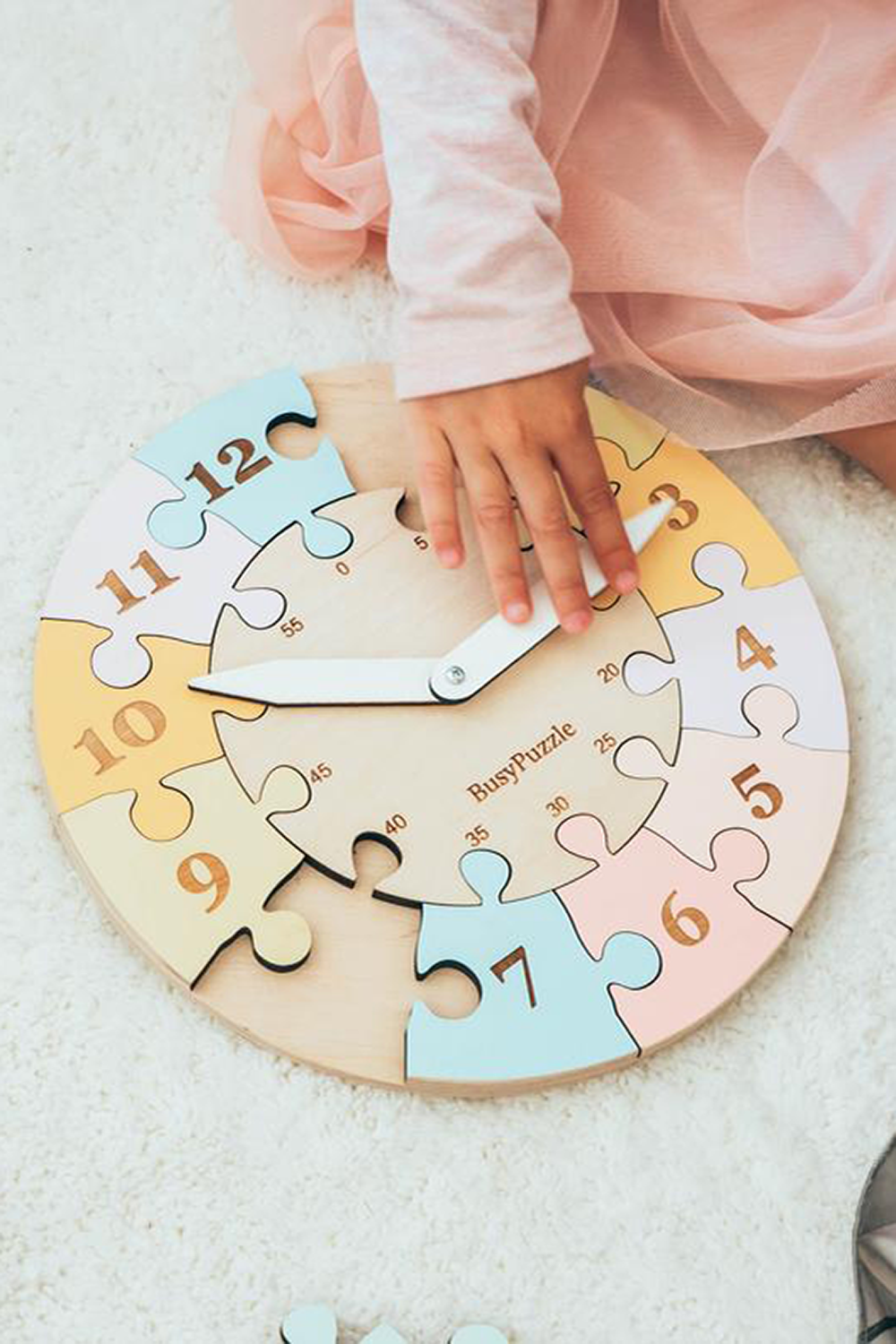
Turn puzzle and play into one with this colourful clock game from Etsy.
Ideal for slightly older children who love learning through play, as they slot the puzzle pieces into the right order to make the clock face and point the hands to the correct time.
Plus, we love the unique pastel designs!
Amonev Time Teacher clock, Amazon
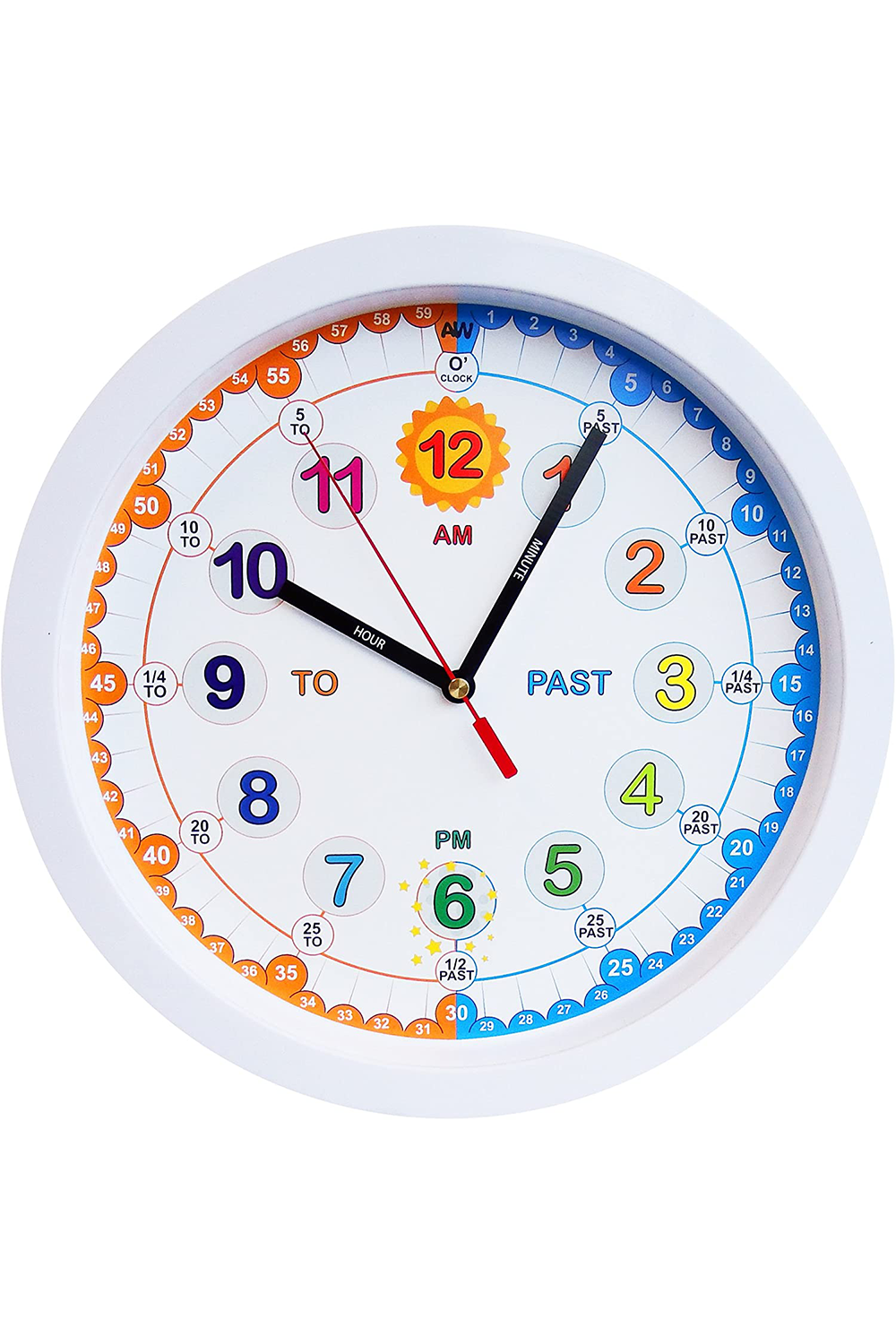
Another colourful option, this is a great clock to get kids learning to tell the time by separating the 15 minute intervals of the clock into sections.
Clear and precise, exactly what you need for little learners out there.
Kipper Tells the Time, Amazon
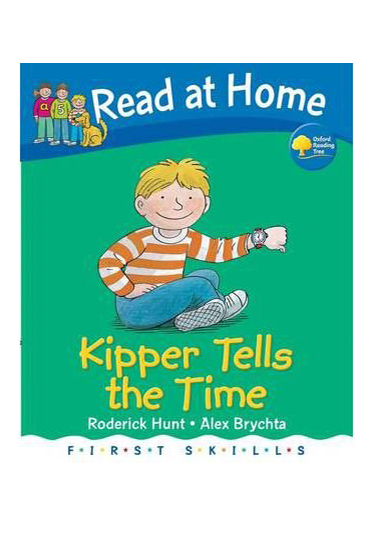
As recommended by our expert, Hannah from Storal Learning, Kipper Tells the Time is a fun activity book that uses some of our favourite children's characters to make learning fun and memorable.
In this story, little readers follow Kipper through his daily routine as he learns how to tell the time.
Orchard Toys Counting Caterpillars Game, Amazon
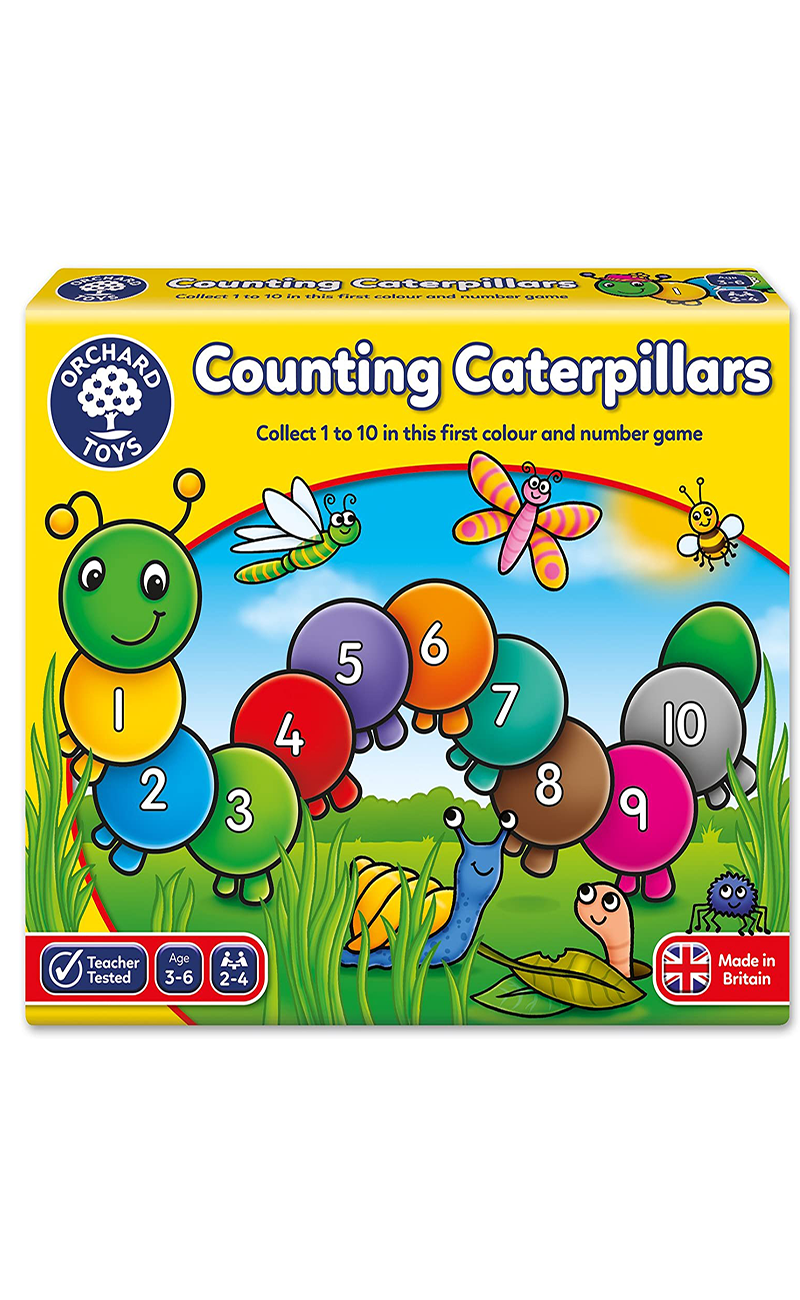
Who will be the fastest to get all their numbers and create the caterpillar? This colourful game is suitable for ages three to six years old and will help little ones advance their learning as they get older, with the numbers written and in dot form.
This is the perfect game to help young child learn to tell the time as it assists them with number sequencing, an integral part of learning the clock face.
Telling Time Bingo, Amazon
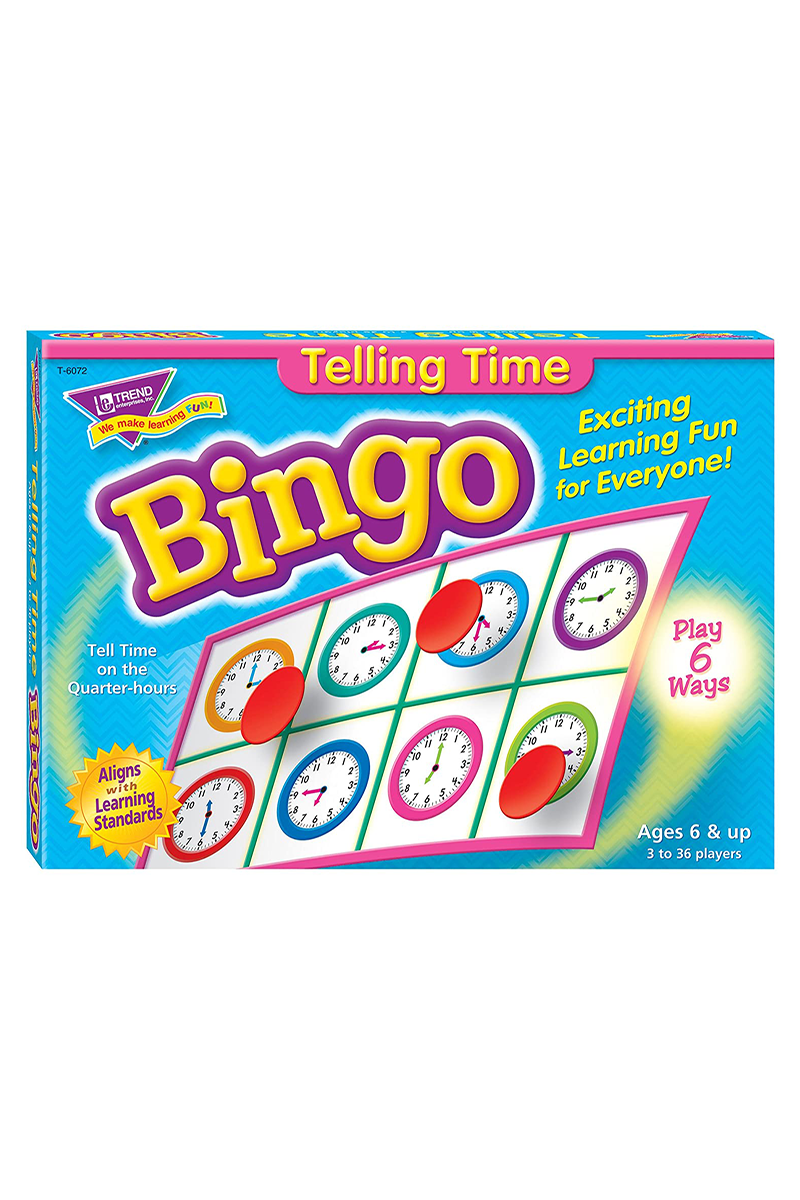
Bingo but not as you know it! This game, great for the whole family to play together, will help children recognise the clock face and tell the time in quarter hour segments.

Grace Walsh is a health and wellbeing writer, working across the subjects of family, relationships, and LGBT topics, as well as sleep and mental health. A digital journalist with over six years experience as a writer and editor for UK publications, Grace is currently Health Editor for womanandhome.com and has also worked with Cosmopolitan, Red, The i Paper, GoodtoKnow, and more. After graduating from the University of Warwick, she started her career writing about the complexities of sex and relationships, before combining personal hobbies with professional and writing about fitness.